Life on campus

RMIT encourages healthy and active lifestyles through sustainable transport choices, providing secure bike parking options across all Australian campuses. We support cycling through the provision of free secure bike parking across all our campuses to students and staff. For more information visit our Sustainable transport page.
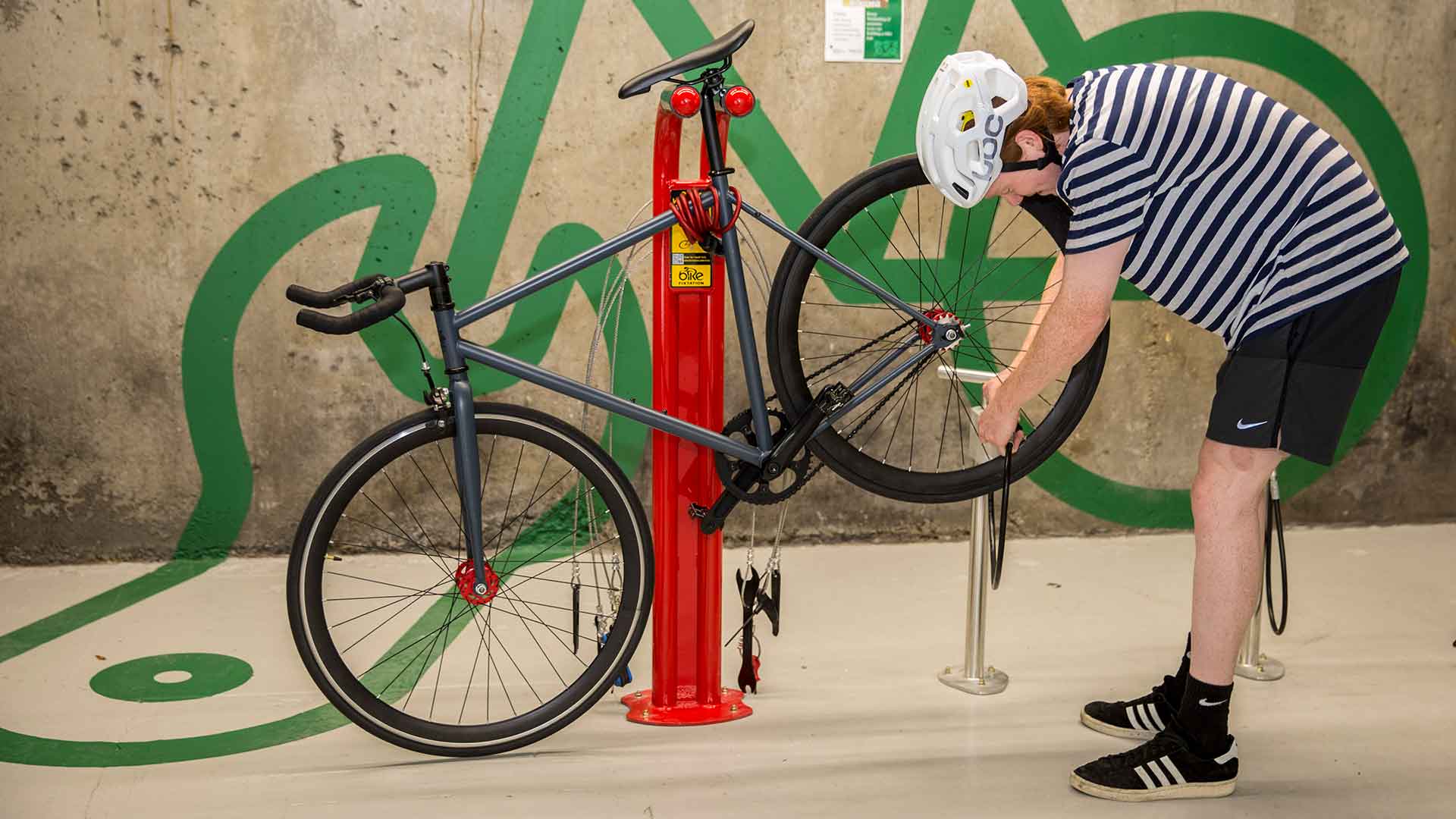
Hydration stations and drinking fountains have been installed across our campuses to make it easy to refill your own bottles. Our hydration stations can be found in all kitchenettes and student break out spaces. The bold yellow graphics on the stations show which were designed by an RMIT student.
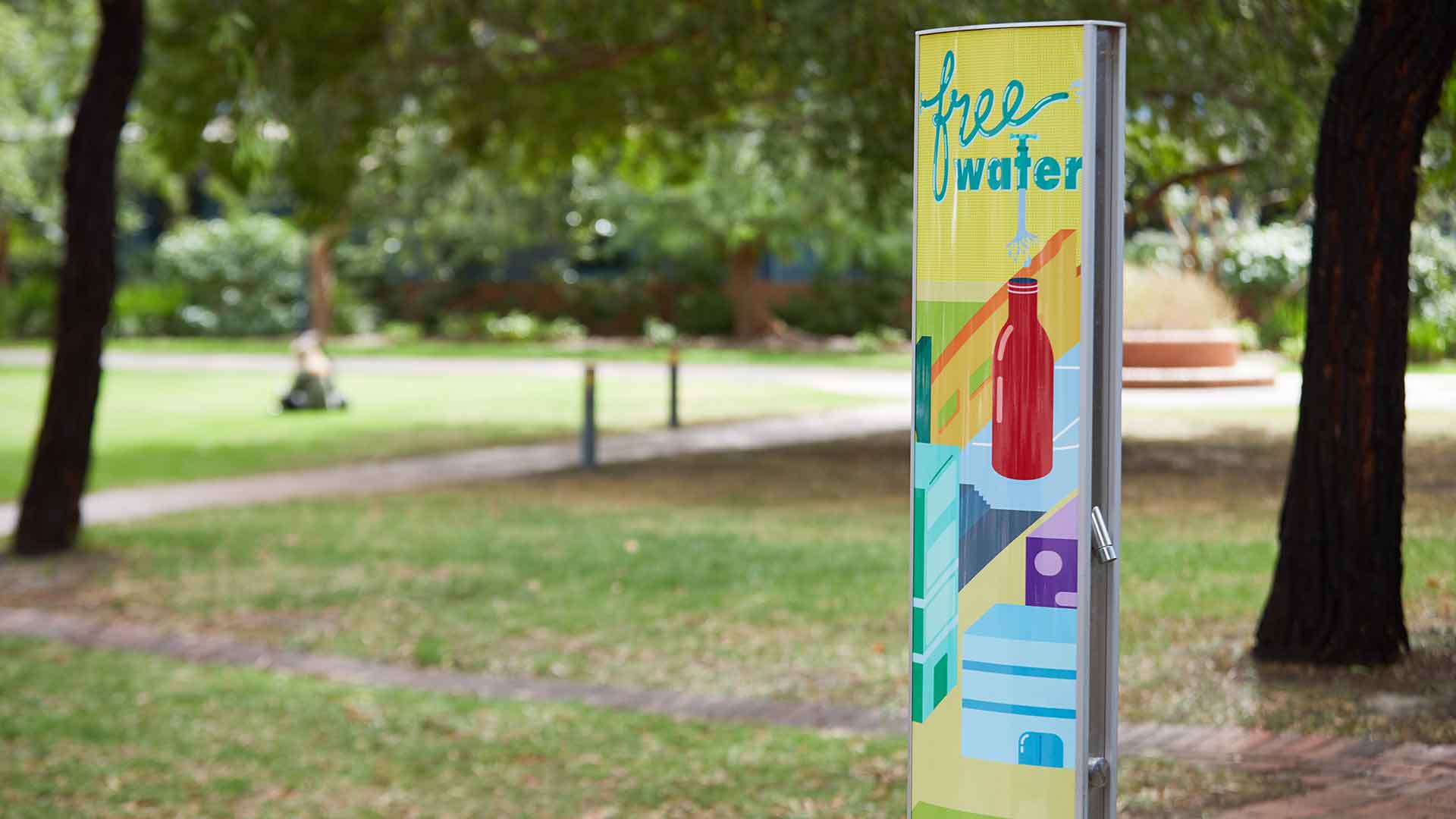
The Sustainable Retail Framework has been created to support and encourage RMIT retailers towards becoming more sustainable in their day-to-day operations.
As a Fairtrade University we also encourage the supply of Fair Trade certified products.
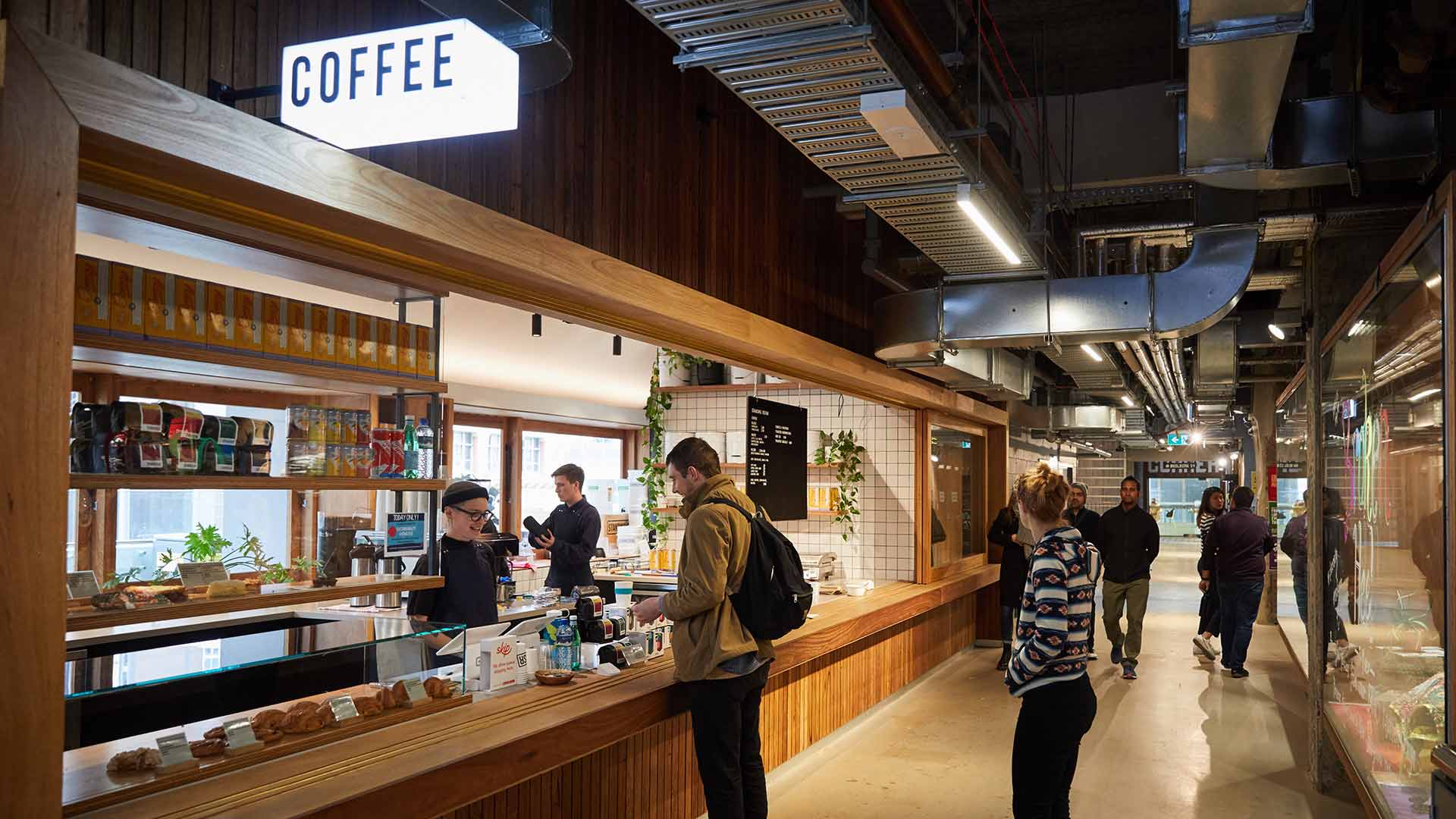
Our Campus Store has a Responsible Sourcing Framework to drive sustainability outcomes and minimise ethical risks in our supply chain. The selection of products at the Campus Store have a focus on showcasing student, alumni and Indigenous work.
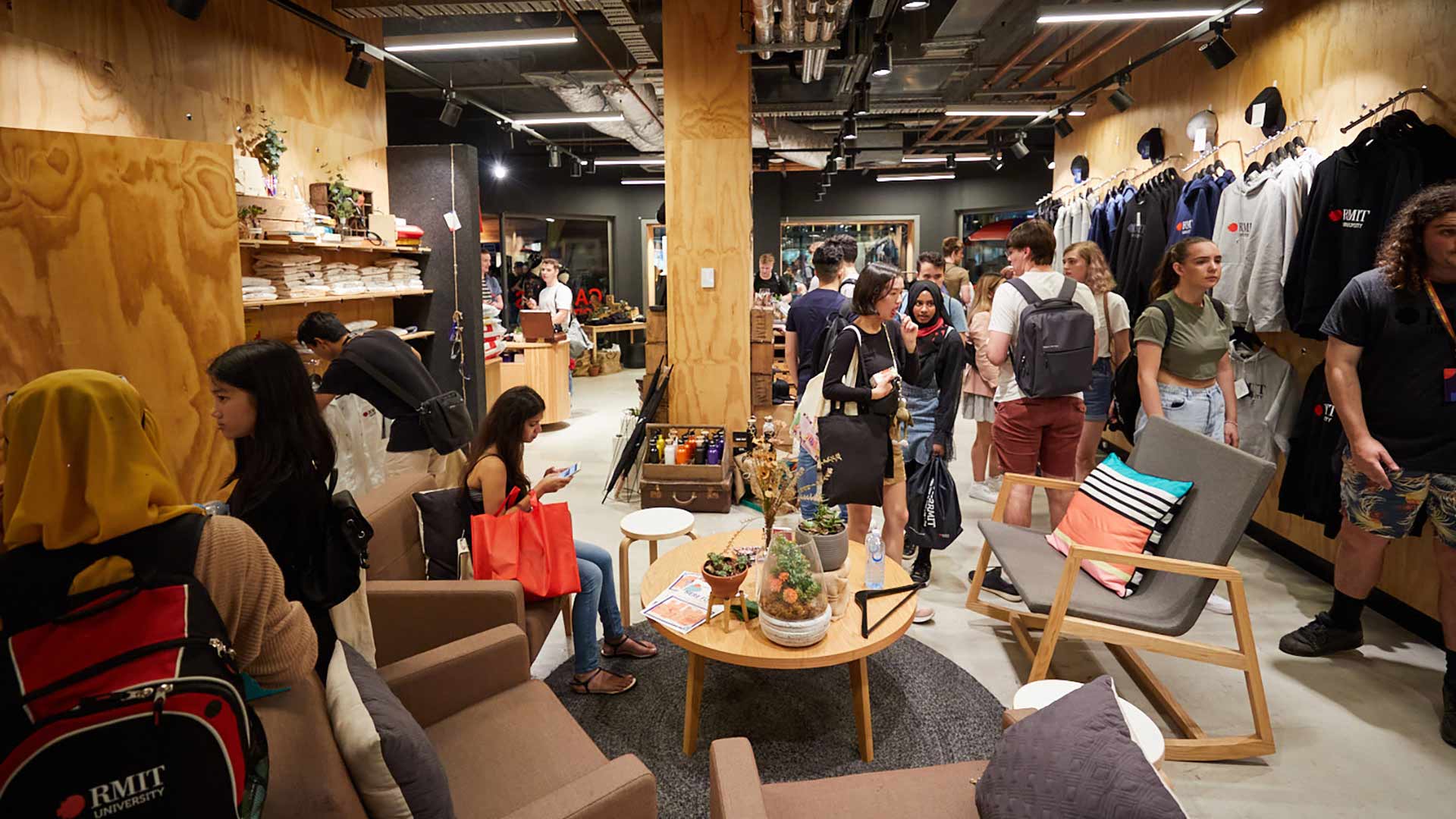
The goal of the sustainable events guide (PDF 11.8 MB) is to help students and staff create events that are economically viable, socially just and environmentally sound. The guide has been designed to be applicable to events of different scales and considers all potential impact areas including; food and water, waste avoidance, community engagement and procurement.
Each year there are trials and initiatives undertaken on campus to avoid waste through better planning and operations. For example in partnership with the Events Team and Students Group, major campus events provided a controlled environment to trial several new initiatives including:
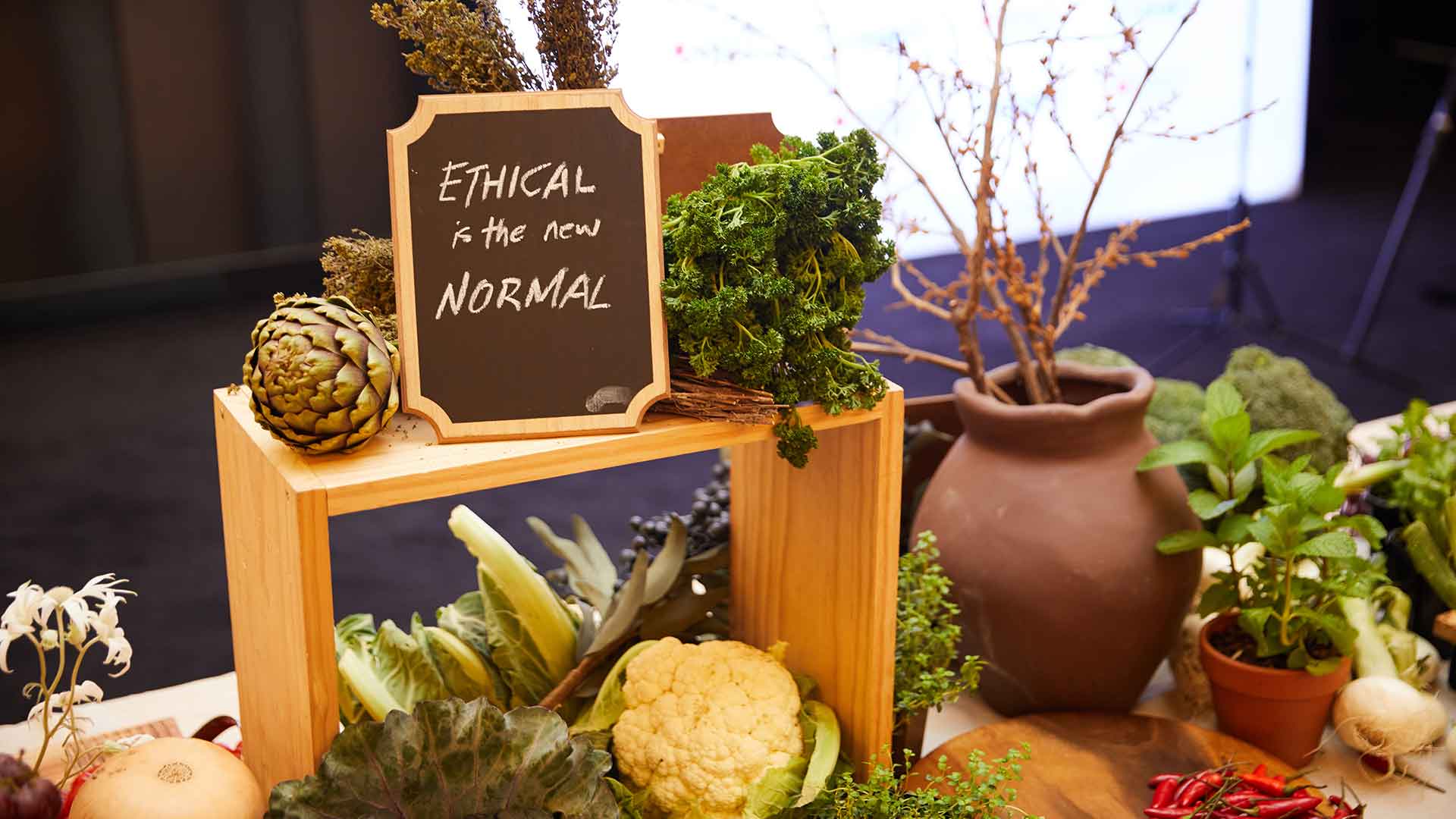
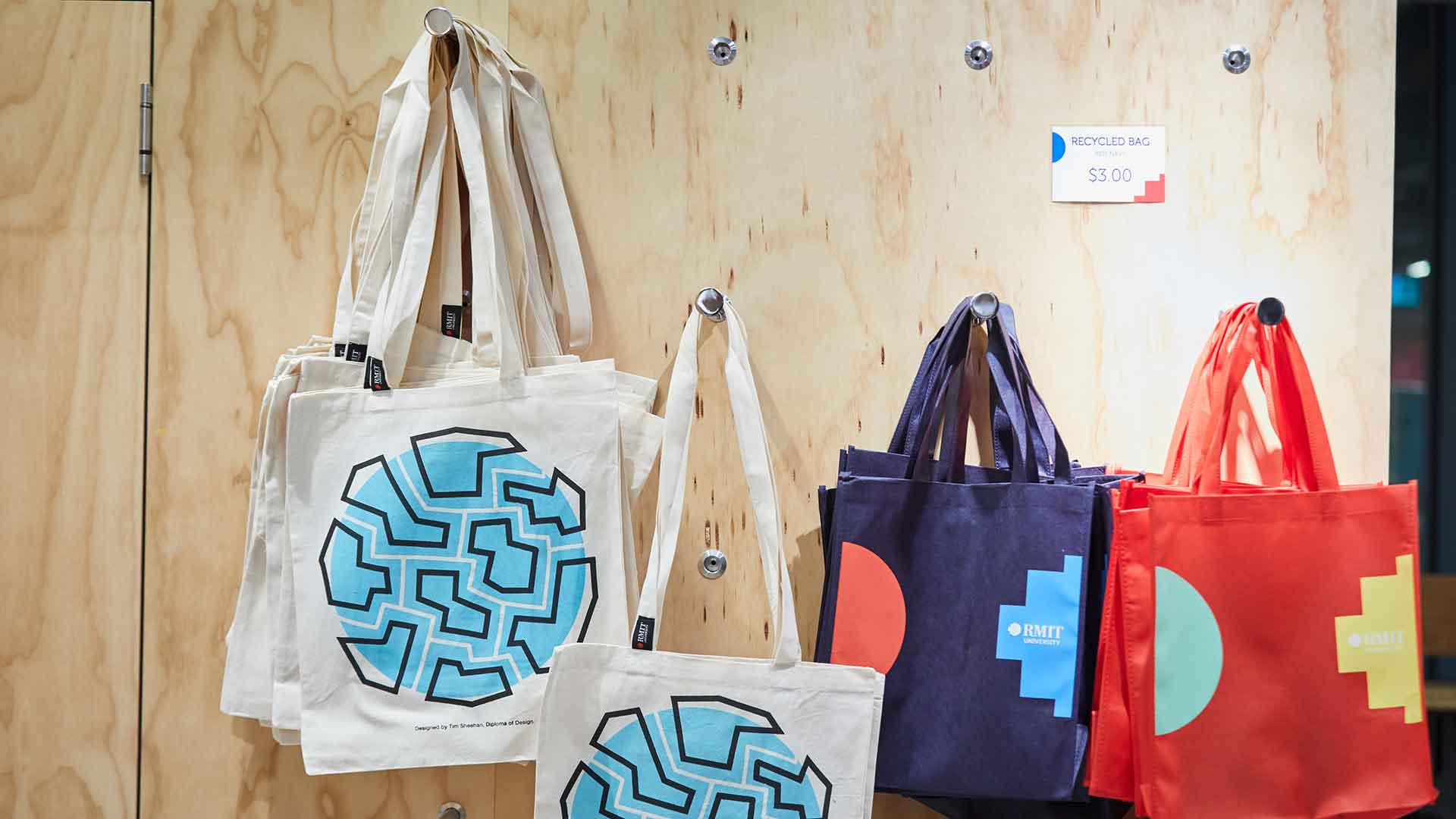


RMIT University acknowledges the people of the Woi wurrung and Boon wurrung language groups of the eastern Kulin Nation on whose unceded lands we conduct the business of the University. RMIT University respectfully acknowledges their Ancestors and Elders, past and present. RMIT also acknowledges the Traditional Custodians and their Ancestors of the lands and waters across Australia where we conduct our business - Artwork 'Sentient' by Hollie Johnson, Gunaikurnai and Monero Ngarigo.
Learn more about our commitment to Indigenous cultures